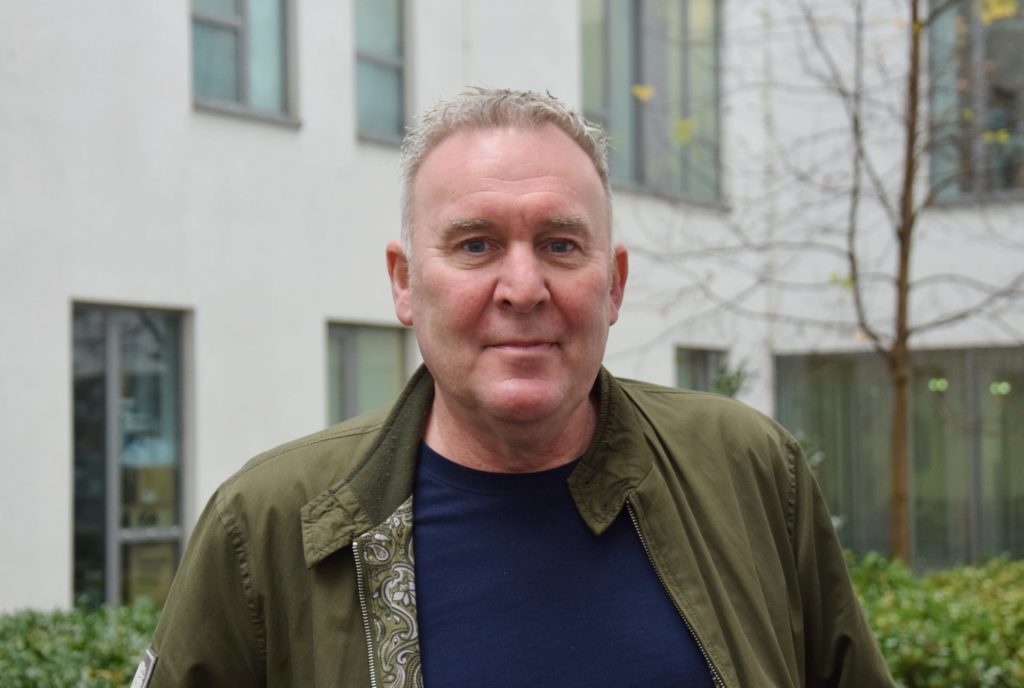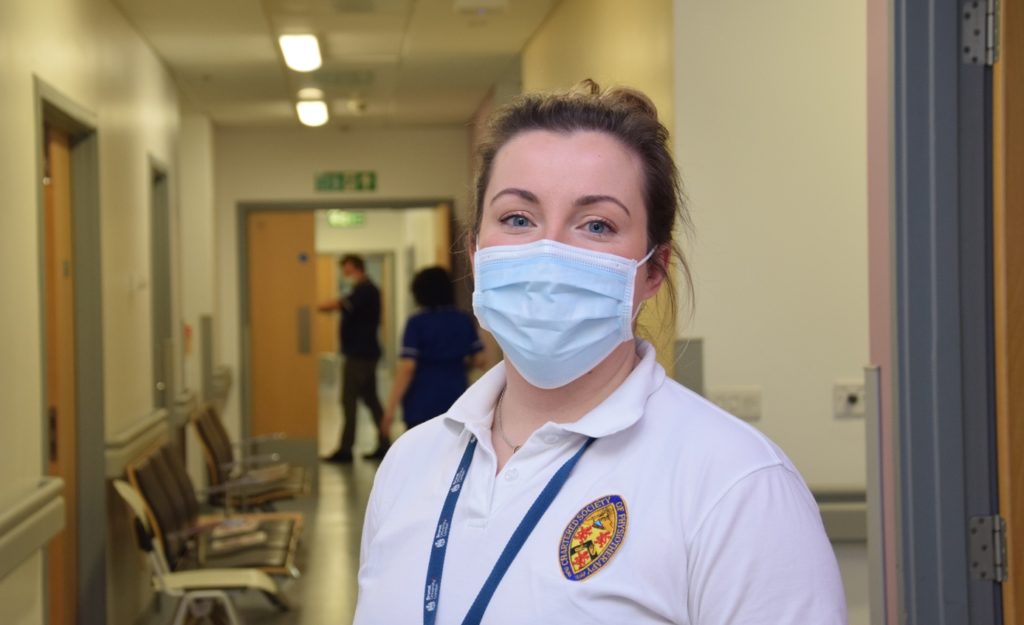Thousands of patients suffering with the long term symptoms of coronavirus can now access specialist help at more than 60 sites, thanks to an early pilot clinic set up in Newcastle earlier this year.
The news comes as NHS England announces the new assessment centres which are taking referrals from GPs for people experiencing brain fog, anxiety, depression, breathlessness, fatigue and other debilitating symptoms.
The clinics offer a one-stop shop for survivors of the virus with their long term recovery. It brings together an integrated approach where doctors, nurses, physiotherapists and occupational therapists are brought together to offer both physical and psychological assessment.
One of the very first clinics was set up in Newcastle’s Royal Victoria Infirmary by Dr Graham Burns, consultant respiratory physician and clinical lead.
“For patients who survive the acute phase of COVID, the road to recovery may not be quick,” says Dr Burns.
“In the first wave of the pandemic earlier in the year many people were discharged from hospital not recovering as quickly as they’d expected. There seemed to be no one to turn to for advice and we had no idea what the post COVID syndrome was – the world had never seen COVID-19 before.”
Dr Burns, who is also the President of the British Thoracic Society added: “We set up the clinic in Newcastle to support patients but it has also been invaluable for the NHS in helping us understand what long COVID is.”
New research has shown one in five people with coronavirus develop longer term symptoms. Around 186,000 people suffer problems for up to 12 weeks, the Office for National Statistics found.
NHS England has provided £10 million for the network of clinics, which started last month. There are now 69 across the country with hundreds of patients already getting help.
Of the announcement Dr Burns comments: “I’m delighted that NHS England are now rolling out similar clinics all over the country. Patients now have somewhere to turn to and on a national scale doctors will be able to learn from our collective experience, better understand the condition and offer tailored support to patients.
“Although COVID 19 is primarily a lung condition we know the condition, particularly in its long phase, can affect any organ in the body. It can also leave patients extremely fatigued, anxious and depressed. Rehabilitation and psychological support are therefore also critical parts of the post covid treatment programme.”
In March, 57 year old Scott Chilvers from North Tyneside thought he had a chest infection and took some antibiotics but it didn’t get any better.

He found himself really struggling to breathe and in early April his girlfriend rang 111 for advice. He was taken by ambulance to Newcastle’s Royal Victoria Infirmary, where he was tested, put on oxygen and found to have covid.
Of that time Scott says: “My world just collapsed. No one knew enough about this virus – there were so many scary stories and I honestly thought ‘is this it?’”
Scott was treated and able to go home but that wasn’t the end of the story. He was left with multiple health problems. Scott continues: “I used to keep myself reasonably fit. Walking and cycling but if I went out I’d have to make sure there was somebody with me just in case. Seven months down the line I still wasn’t right.”
He was one of the first patient here at the long covid clinic setup in Newcastle. Scott continues: “My breathing still wasn’t as it was before. So I went to see my GP who told me I had shadows on my lungs and you go from thinking that you’re getting there to, ‘Bang!’ I was back to the bottom. Then I was sent for tests for my heart, so again that was a knock back.”
Scott was referred to the long covid clinic and that was when Dr Burn and the team were able to reassure him that it was going to take time for him to feel near to normal again to take things easy.
He is now cycling again and his fitness levels are close to where they were before he was found to have covid.
The new centres bring together doctors, nurses, physiotherapists and occupational therapists to offer both physical and psychological assessments and refer patients to the right treatment and rehabilitation services.
Dr Victoria Mitchell, is a consultant clinical psychologist who has a lot of experience talking to patients with long term conditions has been involved with the clinics from the start. “We thought that because this is a lung disease we might find a lot of people would be hyperventilating, really over-breathing and struggling with breathlessness.
“However when we got into the clinic one of the main things that struck us was that even after 12 weeks, some of the patients were struggling quite a lot, and the main issues were fatigue, a lot of sleep issues, anxiety and low mood. They described having brain fog. Being really fearful and worried about their own health, being worried about their future and their recovery.”
Megan Ball is an advanced physiotherapist who also sees the patients in the clinic.

Megan says: “People we see are scared and they don’t know what to do to get better. Our clinic is here to support them, encourage them to take some gentle exercise, enable them to build it up slowly, but not to overdo it.”
It’s not just older people who the team sees. Megan says “I’m in my late twenties and I’ve see people the same age as me suffering with symptoms of long covid.” She says it’s important to continue to follow the guidance, to keep yourself and others safe no matter how old you are.
Ten sites are now operational in London, seven in the East of England, eight in the Midlands, South East and South West respectively, nine in the North West and a further 18 across the North East and Yorkshire.
A further 12 sites are earmarked to launch in January in the East Midlands, Lancashire, Cornwall and Isle of Wight.
The National Institute for Clinical Excellence (NICE) has today also issued official guidance on best practice for recognising, investigating and rehabilitating patients with long covid.
Patients can access services if they are referred by a GP or another healthcare professional, so that doctors can first rule out other possible underlying causes for symptoms.
Sir Simon Stevens, NHS chief executive, said: “The NHS is taking practical action to help patients suffering ongoing health issues as a result of coronavirus.
“Bringing expert clinicians together in these clinics will deliver an integrated approach to support patients’ access vital rehabilitation, as well as helping develop a greater understanding of long covid and its debilitating symptoms.”
Patients can access services through a GP referral or referral from other healthcare professional, allowing doctors an opportunity to rule out any other possible underlying causes for symptoms, such as suspected stroke, lung cancers or respiratory conditions.
